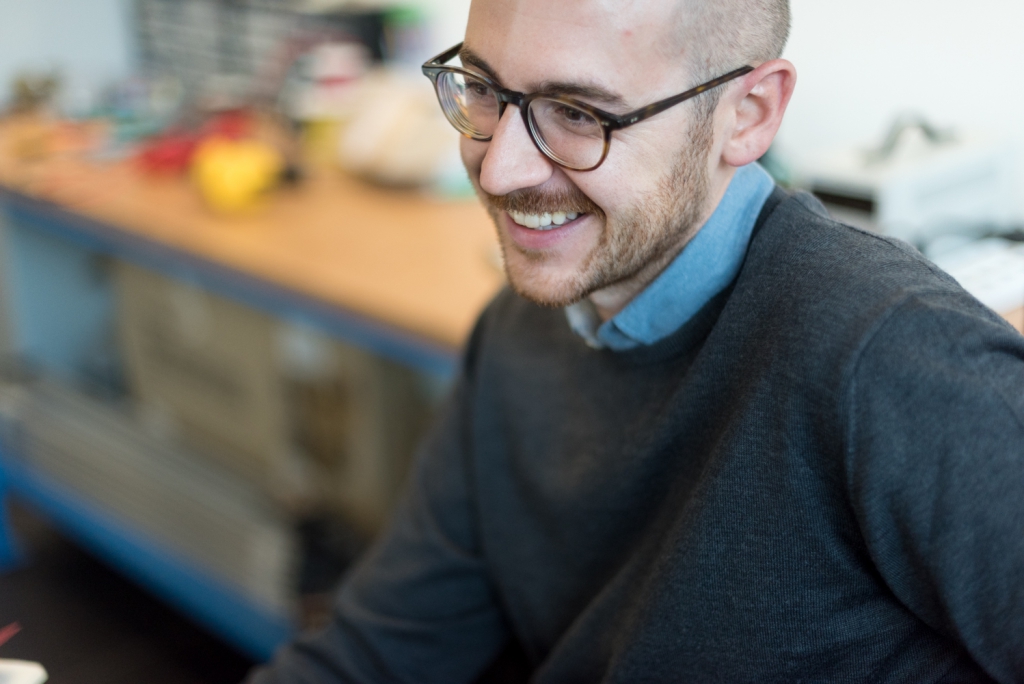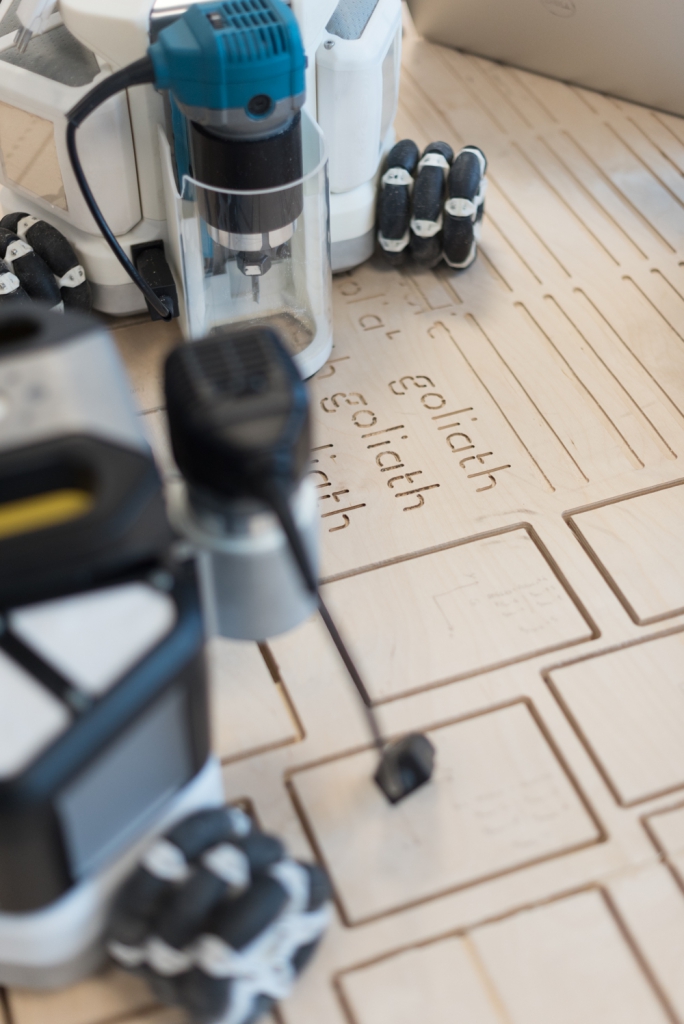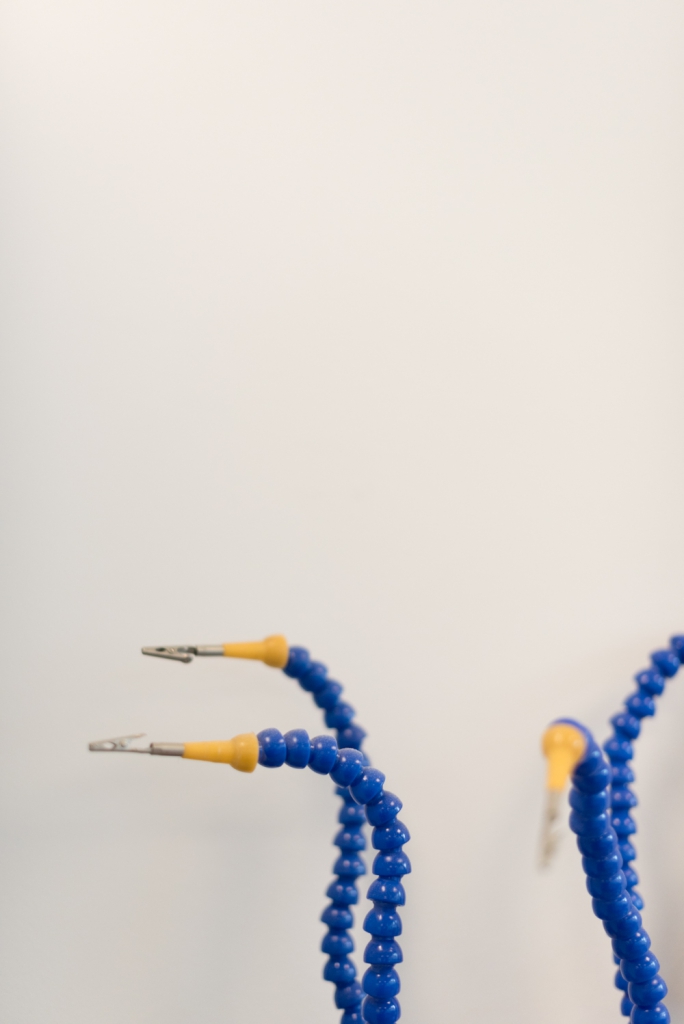“Entrepreneurs, Let’s Think Big.” Interview with Lorenzo Frangi, founder of Springa
The story of Lorenzo, who invented a robot milling machine. The challenges and satisfactions of an extraordinary journey in the robotics and Italian manufacturing sectors.
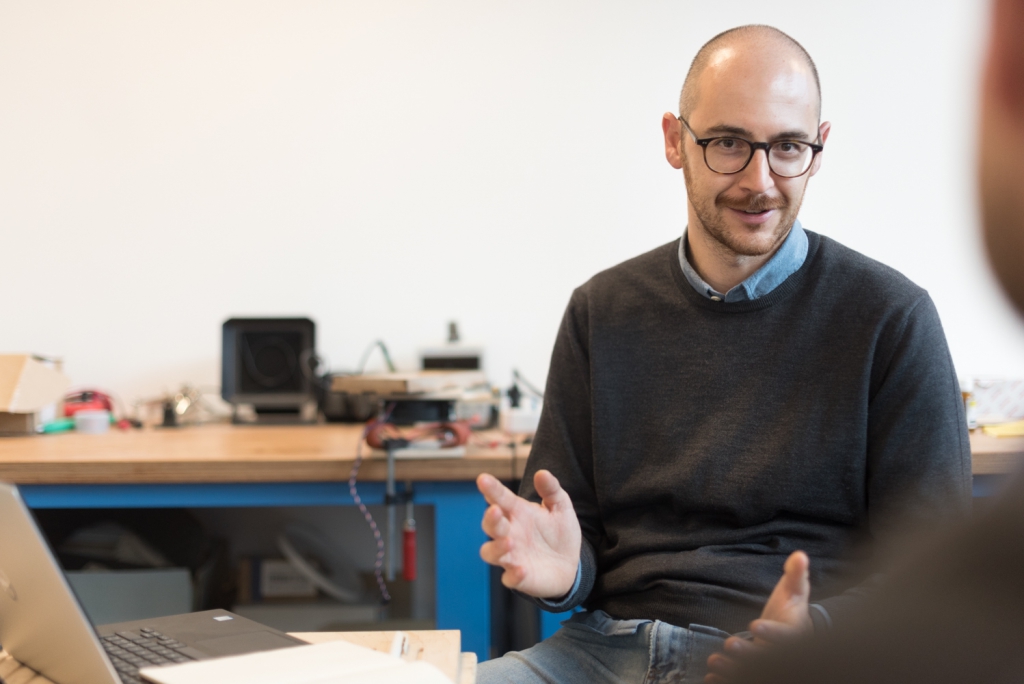
Lorenzo’s office is surprisingly neat and clean and it is also the workshop where his company, Springa, develops and tests Goliath CNC – a portable robot on wheels that cuts wood, plastic and metals. In 2017, Lorenzo and his associates, Alessandro and Davide, raised more than a million dollars through a Kickstarter campaign. Their goal was to create a CNC milling machine capable of working large work areas independently – while containing the cost for the end customer. Since then, their team has been working tirelessly to finish the product development and start marketing it. Springa is a rather special case on the Italian innovative startup scene: Lorenzo and his partners have managed to innovate from the bottom up in a sector, i.e. hardware and robotics, in which usually only very large companies play an important role. We sit with Lorenzo around a large natural wooden table that the team uses to do cutting tests; in the room there are several prototypes, hardware components and work tools.
Would you like to tell us something about yourself?
I am thirty years old, have a degree in Design Engineering and I was born in Brianza about twenty kilometres from Milan. I have always been fascinated by the fact that industrial design is not a “single” discipline: a good designer must master the technical aspects, but also evaluate the fit between market and product, focusing on the needs that the product aims to satisfy. This humanistic aspect is what fascinates me most in my work.
Why did you found Springa?
I became an entrepreneur rather by chance. In 2014 I was fascinated by the maker trend and in general by the spread of digital manufacturing technologies. I was struck by people’s energy, that strong desire to do something. These emerging technologies – often hobbyist – were beginning to attract great interest; I wondered, however, what could be their really useful practical applications. I thought that the milling process was a decidedly interesting area to explore, because it could adapt to different materials such as plastic, wood or metals. Initially developed as a thesis project, the idea of Goliath CNC convinced me and my partners to found our company, Springa.
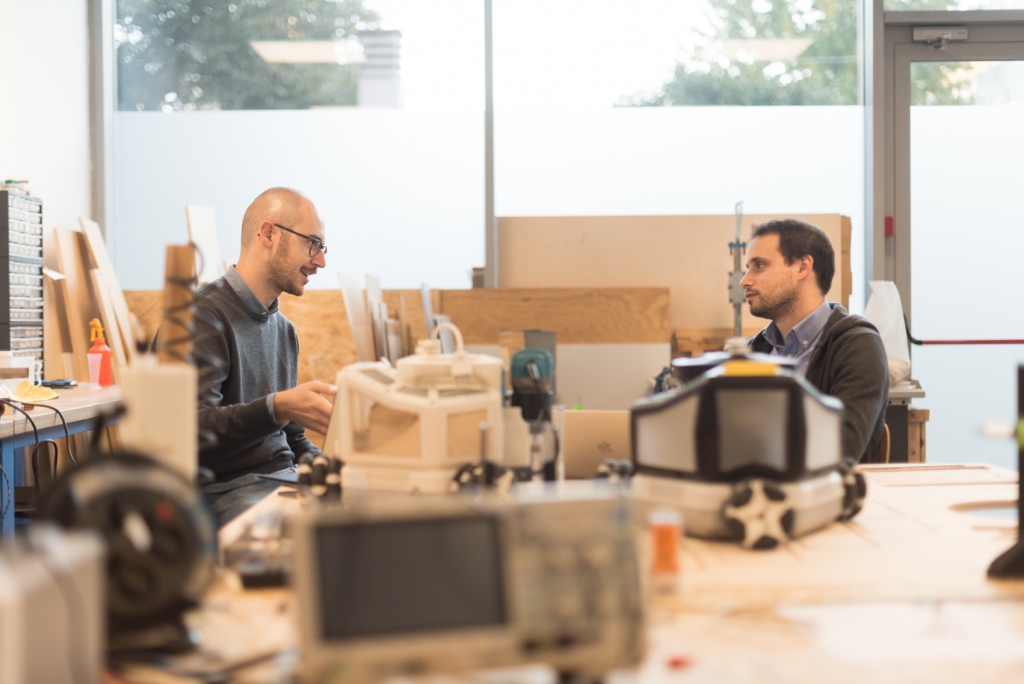
Innovation: everyone is looking for it, few find it. Have you succeeded? How did you do it?
We immediately adopted an approach oriented towards continuous experimentation, creating prototypes incrementally. The Lean philosophy was a forced choice for us, due to the complexity related to the hardware component of our product. It was necessary to concentrate the work on small pieces of the product and proceed a little at a time. We had to learn to be fast and not to fall in love with perfection. All this has helped us to reduce the risk of building the wrong product and to anticipate some problems, ensuring they emerge in the initial development phase. Above all it was fundamental that we should be the first users of the product ourselves: we knew very well the problem we wanted to solve and we constantly wondered if we were building the right solution. This also helped us not to become demotivated when the results were struggling to arrive or when the solutions we designed seemed technically impractical.
Has the Italian ecosystem helped you?
At the beginning we struggled a lot to find the necessary funds to start the company, probably because in Italy it is much more common to invest in software, while hardware product startups are rare and capital-intensive, and thus more difficult to understand for those who are not experts in the field. However, we managed to raise a first investment of 175 thousand euros thanks to Comeeta, a group of entrepreneurs and business angels. We used the capital to create a first prototype and to start the fundraising campaign through the Kickstarter crowdfunding platform. The actual financing came thanks to the great success of the initiative on Kickstarter, where we collected more than one million dollars with only pre-orders. However, access to capital is not everything; thanks to the incubation in PoliHub (the startup accelerator of the Politecnico di Milano, ed) we were able to access a vast network of managers and entrepreneurs who helped us as mentors and partners. Real friendships developed with some of them and I know that when I have a problem, I can count on valuable advice. This network also helped us to identify sound, competent suppliers – all in Italy – to whom we have entrusted the production. I really think that as far as manufacturing is concerned, our country has nothing to envy abroad.
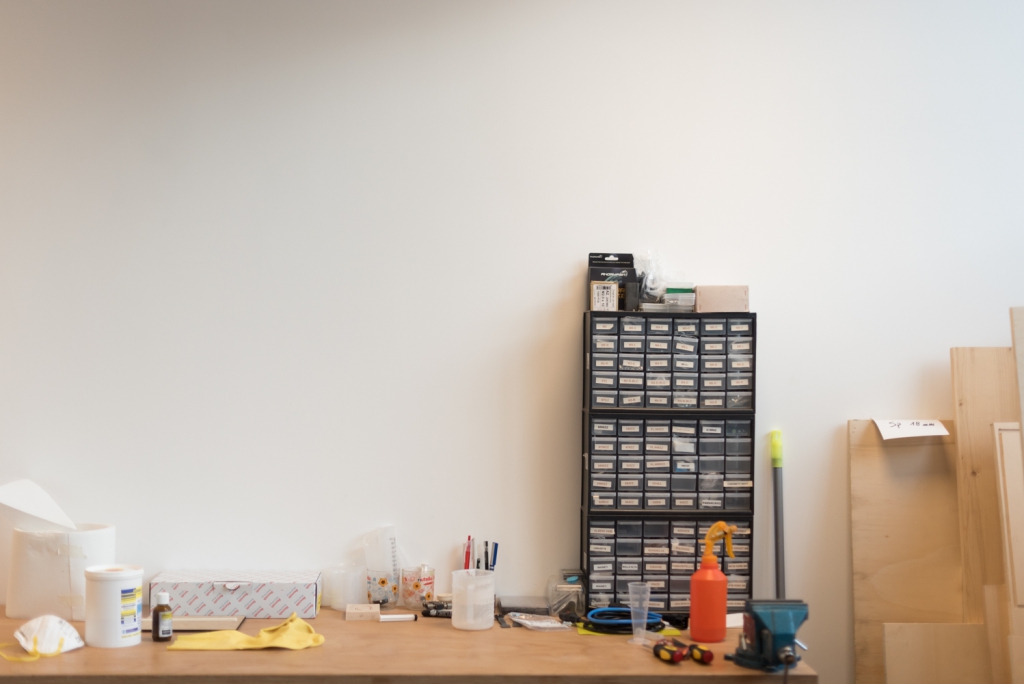
How hard is it to hire talents?
We have hired a computer engineer, a designer, a mechatronic engineer and a person dedicated to marketing, customer care and PR. It is not easy to find people with the right mix of technical skills, autonomy and the desire to get involved. During the interviews some candidates ask me for the company organisation chart, but we are a startup: work and roles change organically week by week together with product and market developments. When, with respect to the role they should take, I reply that there is an empty space in the organisation chart, I measure their reaction: if a person is excited about the idea of building their own role in the company, it means they are right for the job. If, on the other hand, they expect a manager to tell them what to do, I explain that at this stage of our growth we are not the right place for them.
What lessons have you learned in these early years as an entrepreneur?
The first lesson I learned is that dialogue and assimilation decide the success or failure of a new company. Cultivating relationships with highly experienced managers helped us to structure the right processes, identify solutions to problems that seemed insurmountable and find the right motivation when things were going wrong. It was essential to be visible as much as possible from the first day, i.e. showing the product, meeting people and companies and going to fairs. This allowed us to validate the idea of the product, find valuable mentors and get investment.
The second lesson is that being ambitious matters. If you need something, ask. At first we aimed to collect only the capital we thought we needed to start up. But things rarely go as planned: looking back, I would have aimed much higher with the fundraising immediately, without fearing the magnitude of our ambitions.
The third lesson is that the customer should never be neglected. We learned this first hand, having had many people investing in us who have been waiting to receive the product for two years now. It has happened that we have been late in sending periodic updates on product development and when this occurred, our customers pointed it out to us. Customer are the reason we are working, they must never be overlooked, never, even when the work is intense and the challenges are demanding.
What would you say to a young entrepreneur who launches a startup?
I would tell them not to be afraid to submit to the judgment of others; to attend incubators and fairs and to know their market as quickly as possible. We had the greatest satisfaction when we really got involved. As soon as you have a proof of concept go and show it to the people who matter, they will be able to give you the answers you are looking for.
